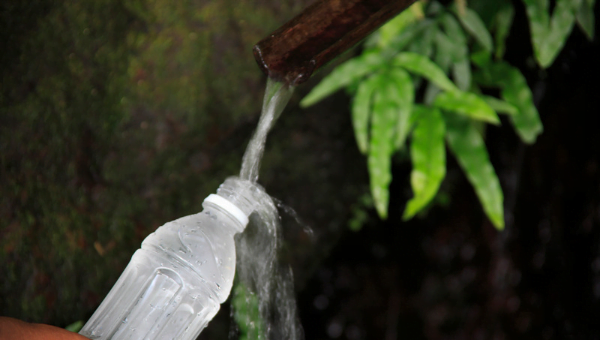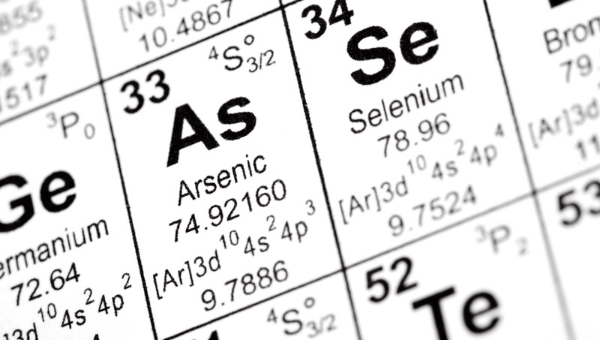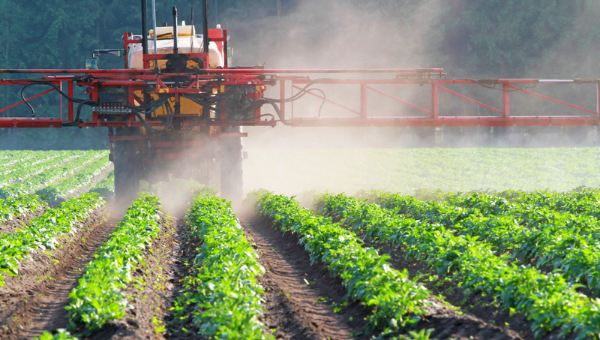0
£0.00
Mini Cart
Empty cart
No products in the cart.

Drinking water straight from a nearby spring or well is becoming more commonplace, especially in rural areas. This tends to be more the case with very remote communities, such as in the Scottish Highlands.
However, other households may prefer spring water to mains water as people may think this is cleaner and with fewer chemicals. This may be true, however, you must be aware of the pros and cons and the possible risks.
Drinking well water has both pros and cons. On the one hand, well water is typically free from the chemical additives found in the mains water supplies and may contain more of the natural minerals beneficial to human health. Well water is also readily available if you live in the countryside.
Spring water may be accessible to you if you live near a clean spring or higher up in the mountains. It is of course also less expensive than buying bottled water.

Although spring water can be more pure and clean than tap water, it is important to do your own water testing to make sure you are not putting yourself in danger.
On the other hand, well and spring water may be more vulnerable to contamination from environmental pollutants, agricultural runoff, or even industrial pollutants that have seeped into the groundwater.
Additionally, well water is not subject to the same regulatory oversight as water companies. It is solely on you to check that the water you are bringing up from the ground, is safe and clean enough to drink. To ensure that your well water is safe to drink, it is vital to have it tested regularly by a UKAS ISO-certified lab.
Just like with tap water, well and spring water can have various contaminants. Unlike tap water, however, contaminants such as bacteria (e.g. E. Coli), viruses or parasites (e.g. Giardia) are more commonly found. These can cause gastrointestinal disorders giving you symptoms such as fever, diarrhoea, or abdominal pains. If you do have any of these symptoms, it is important to see a doctor.
In addition, potential contaminants include naturally occurring minerals, such as arsenic and radon, as well as industrial chemicals like pesticides, fertilizers, and volatile organic compounds.
Heavy metals, such as lead and mercury, could also be present in high concentrations in your well or spring water.
As the water testing for well water is on you, no one else will come around to test your water supplies. Well water testing is therefore the only way to know for sure whether your well water is safe to drink and free from harmful contaminants.
Just like our tap water testing packages, we offer several different testing packages for well water, as you can see below.
These range from a basic well water test to an advanced one which will cover all the miners and metals you may find, as well as volatile organic compounds and bacteria testing too.
| £159.00£189.00 Max: Min: 1 Step: 1 Add to cart | |
| £239.00£249.00 Max: Min: 1 Step: 1 Add to cart | |
| £329.00£369.00 Max: Min: 1 Step: 1 Add to cart |
The possible risks of drinking contaminated well water will depend on the extent of the contamination.
As mentioned above, bacteria in well and spring water can cause stomach upset in humans.
Exposure to heavy metals, such as lead or mercury over the long term can lead to neurological damage and developmental delays, particularly in children.

Arsenic, a naturally occurring mineral in some well water sources, can increase the risk of cancer and other health problems.
Nitrates, commonly found in agricultural areas, can pose a risk to infants and pregnant women and can cause something called “blue baby syndrome“. The Pubmed article focuses on two cases of blue baby syndrome that happened after formula was reconstituted with water from a private well, that was very high in nitrates. Complications such as neurological damage, coma and death can occur in the more severe cases.
Pesticides, herbicides, and other industrial chemicals can also have extremely harmful effects on human health, especially if consumed over the course of a lifetime.

Pesticides and herbicides can seep into the water table and contaminate local rivers, springs and wells
To minimise the risk of you or your family becoming unwell if you are drinking from a private source, it is vital to have your well and spring water tested by an independent certified lab. If you are unsure which test is best for you, do contact us and our scientists will get back to you with advice.